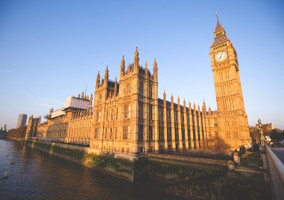Charity infrastructure bodies have expressed disappointment after it was revealed that only two of 52 organisations that attended a recent health and social care policy meeting with the prime minister were charities.
The two charities in attendance at NHS Recovery Forum in January were think tank the King’s Fund and the Royal College of Surgeons, according to a Freedom of Information request from Local Government Chronicle published this week.
It found that the meeting had 52 attendees including Rishi Sunak and representatives of hospital trusts, NHS England and government departments.
The meeting brought together “social care leaders and outside experts on matters of NHS and care policy delivery” to discuss “social care and delayed discharge; urgent and emergency care; elective care and primary care”.
Charity sector bodies including ACEVO, NCVO, Pro-Bono Economics (PBE) and New Philanthropy Capital (NPC) shared their disappointment at the lack of leading social care and healthcare charities present.
ACEVO: ‘Civil society is not fully embedded in government’
Jane Ide, chief executive of ACEVO, said the event was a “missed opportunity” for the government to draw on charities’ expertise.
“We have a longstanding and continuing frustration that we see this commitment being delivered in discrete pockets of government, not throughout the system, and that too often it relies on individual officials’ personal commitment to engaging with civil society – it is not fully embedded in the way government thinks,” she said.
“This key roundtable apparently missed the opportunity to hear directly from representatives of our sector who absolutely understand the challenges from a different perspective to those who were around the table, who have well considered solutions to offer, and who are keen to work in partnership with government and the NHS to deliver those solutions.
“That is both disappointing and frustrating, especially when it is not difficult to bring those voices into the room. We have an excellent specialist infrastructure body in National Voices, with a wealth of knowledge around these policy areas based on the insight that comes from their membership. I very much hope that next time the prime minister hosts such an event, they will be at the top of the invite list.”
PBE: ‘Charities should be at the heart of a meeting like this’
A recent PBE report found the representation of the social sector in parliamentary meetings is lower than most other groups, particularly in comparison to the private sector.
Helen Barnard, PBE’s director of research and policy, told Civil Society News that more charities should have been at the meeting with Sunak.
“Charities are major providers of health services, the single largest provider of NHS-commissioned mental health services and play a vital role in the prevention of illness through early intervention work. Their insights and ideas should be at the heart of high-level discussions about tackling the pressures facing our health services,” she said.
“We welcome the fact that some charities attended this meeting with the prime minister, however it is far from clear that their representation was commensurate with the importance and diversity of the contributions they could have offered.
“Our research has found that charities can be overlooked and excluded from having a seat at decision-making tables across government. Charities are at the heart of communities and provide evidence and insight which policymakers would otherwise struggle to find. This enables the government to improve policy and delivery and helps charities perform their roles more effectively, creating better outcomes for taxpayers and charity beneficiaries alike.”
NCVO: ‘The government is missing out’
Alex Farrow, director of influencing and engagement at NCVO, said: “The government is too often missing out on the vital experience and insight that charities have to offer towards tackling the many challenges our society faces.
“It’s clear that charities delivering health and social care services - and those representing people using these services - should be better represented in these spaces. Charities deliver a significant proportion of health and social care services and the current crises cannot be solved without their involvement.”
Though there have been welcome examples of government and charity sector partnership and engagement, such as the role of volunteering and the support charities received with spiralling energy costs, “we need to see much more” says Farrow.
“Government must place greater value on the contribution made by charities and raise their status in the engagement it undertakes. Our sector is always willing to engage with government to ensure people and communities get the support they need to live good lives.”
NPC: ‘Frontline experience can offer valuable insight’
Dan Corry, chief executive of NPC, found the lack of charity sector attendees surprising.
“We know from our work with health and social care charities that their frontline experience can offer valuable insights that would be very useful for policy makers,” he said.
“It’s surprising that organisers of the PM’s NHS Recovery Forum didn’t recognise this, and we hope that charities’ expertise are better represented in future.
“Charities themselves should also be proactively putting themselves forward, using clear evidence to show the contribution they can make.”
Civil Society News has contacted the Cabinet Office for comment.
Related articles












